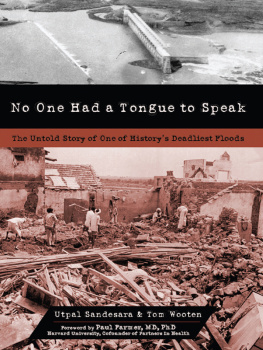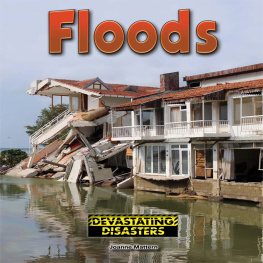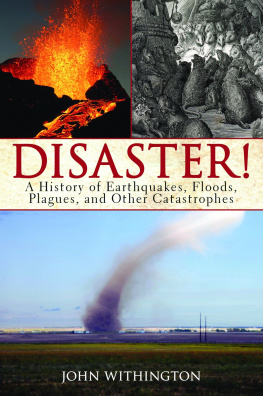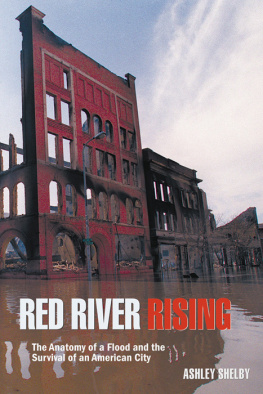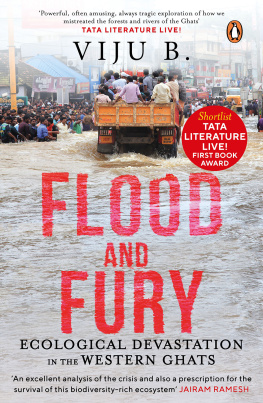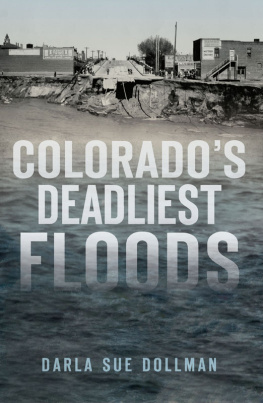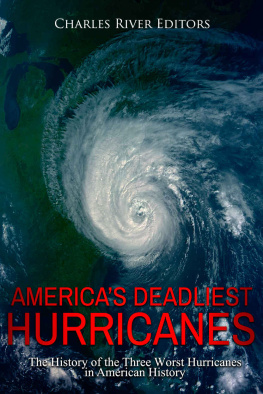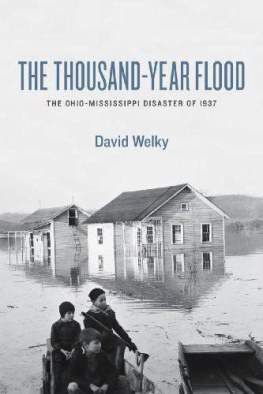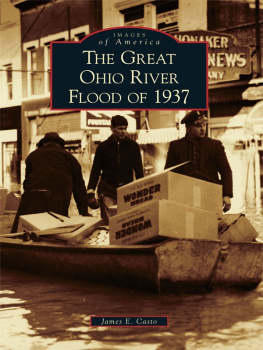
W e hatched the plan for this book on a cold January night in 2005, when we were freshmen in college. In the six years that have elapsed since, hundreds of people have lent us their energy, insights, and advice. The pages you now hold in your hands were shaped by their support and assistance.
For early encouragement and guidance, we are greatly indebted to Steve Bloomfield, Jennifer Leaning, Bill Clark, Sheila Jasanoff, Jill Lepore, Steve Biehl, Bill Fisher, and Gary Krist. For academic backing and administrative support, we thank the Harvard Committee on Degrees in Social Studies, the Harvard Committee on Degrees in History and Literature, the University of Pennsylvania Medical Scientist Training Program, and the University of Pennsylvania Department of Anthropology; in particular, we wish to acknowledge Anya Bernstein, Ted MacDonald, Maggie Krall, Skip Brass, and Philippe Bourgois. This book's development paralleled our own academic and intellectual growth during our time in college, which was greatly influenced by Marshall Ganz, Arachu Castro, Paul Farmer, Sadhana Bery, and Pauline Peters. Finally, our fieldwork in India would have Acknowledgments been impossible without the generous financial support of the Harvard South Asia Initiative, the Harvard Asia Center, and the Radcliffe Fellowships program.
After a summer of research in India, we arrived back at Harvard without an academic adviser. Despite his full roster of students, Max Likin agreed to take us under his wing. With humor and patience, he instructed us in the art of storytelling and shepherded our first draft to completion.
This journey has not been easy, and a number of people have supported (and tolerated) us along the way. We send our thanks and love to Jonathan Chow, Yinliang He, Zach Widbin, Laura Togut, Monica Thanawala, Winnie Nip, Jingshing Wu, Mary Brazelton, Virginia Anderson, Jane Cheng, Joy Xi, Kathleen Coverick, Michelle Wile, Tracy Carroll, Aaron Zagory, Joshua Stanton, Kevin Uy, Nate Walker, Chris Hsiung, Ben Wang, Nabil Thalji, James Hui, Tina Ho, Jon Brestoff, Trudy Kao, Dan Leyzberg, Caroline Wooten, Lee Wooten, Jamie Devol, Ishani Sandesara, Nautama Sandesara, and Niranjan Sandesara.
The hospitality of a number of people in India allowed us to carry out an unbelievable amount of research over the span of eleven short weeks in 2006. We are tremendously indebted to Kapilbhai Patel and Meeraben Patel for their hospitality in Ahmedabad and Gandhinagar, and to Bhavanaben Patel, Ramaben Vaishnav, Bharatbhai Vaishnav, Lalabhai Humbal, Rajuben Humbal, and the late Jashwantbhai Humbal in Morbi for their hospitality and cobra-fighting prowess.
Our interviews and archival research would not have been possible without help from Dilipbhai Barasara, Prabhakarbhai Khamar, Mohansinh Jadeja, Manoharsinh Jadeja, Dineshbhai Kundalia, V. Thiruppugazh, Narendrabhai Modi, Hanifbhai Chauhan, Prafulbhai Doshi, Y. K. Murthy, Dhirubhai Mehta, Ratilal Desai, Gokaldas Parmar, Haribhai Panchal, Babubhai Patel, R. A. Mehta, B. R. Shah, Rahul Bhimjiani, Bhaskarbhai Tanna, Pradeep Sharma, A. R. Banerjee, Gokaldas Parmar, Arvindbhai Patel, D. A. Satya, C. K. Nimavat, Harshadbhai Gohil, Ramilaben Solanki, Prafulbhai Doshi, and the staff of the Harvard Library System. In particular, Dilipbhai's tireless efforts greatly enhanced our fieldwork, and we owe him our deepest gratitude.
A number of organizations also lent us their support. We are indebted to the staff of the Indian Census Bureau office in Ahmedabad; R. T. Kotak, B. B. Patadiya, Atul Mehta, and the staff of the subdistrict and prant offices in Morbi; N. A. Khadia and the staff of the Morbi Irrigation Section Office; the staff of the Rajkot Irrigation Circle; K. B. Shah, D. H. Patel, and the staff of the Gujarat Central Designs Organization; the staff of the Gujarat Legislative Assembly; Manubhai Shah and the staff of the Consumer Education and Research Centre; J. B. Patel and the staff of the Gujarat Irrigation Department; Deepak Bhatt, Jagdish Trivedi, and the staff of the Rajkot Directorate of Information; Mr. Padiyar and the staff of the Gandhinagar Directorate of Information; and the editors and staff of Phulchhab, Akila, and Sandesh.
Mahendrabhai Dave and the Trust of the Morbi Flood Museum hold a special place in our hearts.
For three memorable weeks in Morbi, Ishani and Nautama Sandesara were our adventurous translators and guides. Many stories and characters would have escaped these pages without their indefatigable help.
Watching this manuscript move from a draft to a published book has been tremendously gratifying, and we owe our gratitude to the skilled hands that have helped to shape the final product. Nishubhai Sedani and the royal family of Morbi graciously volunteered their photographs. Jamie Devol prepared the maps and diagrams, and computer edits were provided by Jon McMurry and Matt Conboy. Zach Widbin, Monica Thanawala, and Alice Lee provided extensive and insightful comments on our writing. Rick Balkin worked tirelessly until he found our story a home; as first-time authors, we could not have asked for a more knowledgeable, nurturing, or humorous agent. We give our Acknowledgments heartfelt thanks to Mark Hall, Chris Kramer, Jennifer Tordy, and Jade Zora Ballard, who have guided us through the publication process at Prometheus Books with patience, understanding, and enthusiasm.
Finally, and most important, we thank the one hundred forty-eight individuals who shared their stories with us. Their generous, courageous, and forthright narration captivated us for days. Because of them, we left India awestruck, inspired, and determined to complete our work. We hope that we have done them justice in these pages.
BIBLIOGRAPHY
Aaspaas. Special Edition: Becoming Death, the Machhu Attacks Morbi. [In Gujarati.] Special issue, Aaspaas 31 (1979).
Amrutia, P. M. Notice under Sec. 80 of the Code of Civil Procedure: Failure of Dam Machchoo-2, Claim Arising From. Letter to Secretary, Government of Gujarat. Morbi, August 5, 1980. Dhirubhai Mehta Papers.
Appadorai, Arjun. Recent Socialist Thought in India. Review of Politics 30 (1968): 349-62.
Arora, Ramesh Kumar, and Rajni Goyal. Indian Public Administration: Institutions and Issues. New Delhi: Wishwa Prakashan, 1995.
Baboo, Balgovind. Politics of Water: The Case of the Hirakud Dam in Orissa, India. International Journal of Sociology and Anthropology 1, no. 18 (2009): 139-44.
. State Policies and People's Response: Lessons from Hirakud Dam. Economic and Political Weekly, October 12, 1991, 3273-79.
. Technology and Social Transformation: The Case of the Hirakud Multipurpose Dam in Orissa. Delhi: Concept, 1992.
Bajaj, A. K. National Register of Large Dams 2009. New Delhi: Central Water Commission (Government of India), 2009. http://www.cwc.nic.in/main/downloads/National%20Register%20of%20Large%20Dams%202009.pdf.
Banerjee, A. R. Regarding Distribution of Work. Rajkot: Revenue Department (Government of Gujarat), 1979. A. R. Banerjee Papers.
. Regarding the Coordination of Relief. [Inferred title.] Rajkot: Revenue Department (Government of Gujarat), 1979. A. R. Banerjee Papers.
. Report of the Happenings Since Early Morning of 12.8.79 [Draft]. Rajkot: Revenue Department (Government of Gujarat), 1979. A. R. Banerjee Papers.
Next page
